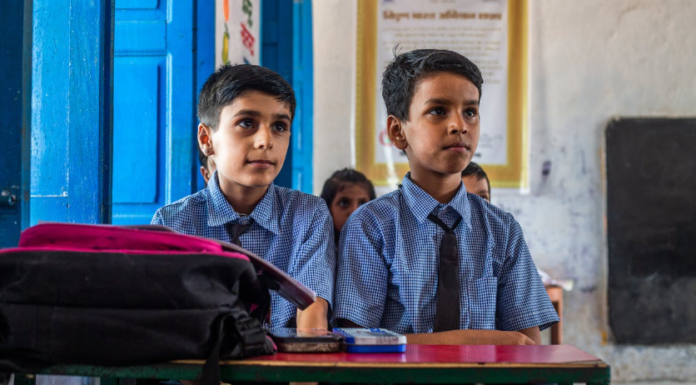The Tamil Nadu government, led by MK Stalin, has reinforced its opposition to the National Education Policy (NEP) 2020 by allocating ₹2,000 crore to the School Education Department in its 2025-26 state budget. This decision follows the Union government’s denial of ₹2,152 crore in Samagra Shiksha funds due to Tamil Nadu’s refusal to implement the NEP.
State’s Firm Stance Against NEP
Tamil Nadu’s stance against the NEP is rooted in its disagreement with key provisions, including the three-language policy. Finance Minister Thangam Thennarasu stated that despite the funding cut, the state would continue to support government school students using its own resources. He announced a total allocation of ₹46,767 crore for the School Education Department in 2025-26, an increase from ₹44,042 crore in 2024-25.
“The Union government’s decision to withhold funds will not affect students’ education. We have allocated the necessary resources to cover teacher salaries and continue student welfare programmes,” Thennarasu said while presenting the budget.
Key Educational Initiatives
Tamil Nadu has been using Samagra Shiksha funds for various educational and student welfare programmes over the past seven years. These include:
- Ennum Ezhuthum Thittam – A foundational literacy and numeracy programme.
- Special education schemes – Support for children with disabilities.
- Transport allowances – Assistance for students from remote areas.
- Higher education guidance – Career counselling and academic support.
- Art festivals – Platforms for students to showcase creative talents.
From the 2025-26 fiscal year, these programmes will be entirely state-funded.
Infrastructure Development
The budget also includes significant investments to improve school infrastructure:
- ₹1,000 crore for additional classrooms, science labs, and drinking water facilities.
- ₹160 crore to upgrade computer labs in 2,000 schools.
- ₹56 crore to enhance 880 hi-tech labs.
- ₹65 crore for setting up smart classrooms in 2,676 government schools.
Experts Praise the State’s Initiative
Educationist D Nedunchezhiyan praised the state government’s decision, calling it a strong message that Tamil Nadu prioritises education over politics. “The state’s decision to cover the funding gap demonstrates its commitment to students’ welfare and educational quality,” he said.
Economist Jothi Sivagnanam, former member of the Tamil Nadu Planning Commission, supported the ₹2,000 crore allocation. He noted that while some may see it as a burden on the state exchequer, the total budget of ₹4,39,293 crore makes the additional allocation manageable. “Education and social welfare spending should be viewed as a social investment that will benefit the state in the long term,” he said.
Centre’s Violation of Commitments
Sivagnanam also highlighted that the Centre’s refusal to release the promised Samagra Shiksha funds violates budgetary commitments. The Centre’s stance is seen as an attempt to pressure Tamil Nadu into adopting the NEP, despite the state’s consistent opposition.
Conclusion
Tamil Nadu’s decision to increase education funding despite denied central funds reflects its commitment to protecting the state’s independent education model. The increased budget allocation ensures that government schools and student welfare programmes remain unaffected, reinforcing Tamil Nadu’s position against the NEP while maintaining educational quality and access.











